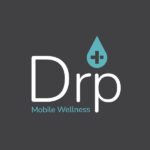Did you know that Utah leads the country in childbirths per year. According to data from the Centers for Disease Control and Prevention (CDC), Utah is the state with the highest birth rate in the United States, with a birth rate of approximately 17.0 births per 1,000 population in 2019, the most recent year for which data is available. It also states there were approximately 27,000 live births in Utah in 2019, this is an average of approximately 74 live births per day.
This is important because postpartum affects a significant number of mothers after childbirth. Approximately 1 in 9 women experience symptoms of postpartum depression in the United States. The prevalence of postpartum depression can vary depending on several factors, including the woman’s age, prior mental health history, and level of social support.
In addition to postpartum depression, other common postpartum symptoms include fatigue, sleep disruptions, and physical discomfort. These symptoms can be particularly challenging for new mothers who are also trying to care for a new baby.
What is postpartum?
Postpartum refers to the period of time after childbirth when a woman’s body is undergoing physical and hormonal changes as it recovers from pregnancy and delivery. This period can last anywhere from a few weeks to several months, and it is a time when new mothers are adjusting to the demands of caring for a new baby while also taking care of themselves. During this time, women may experience a range of physical and emotional symptoms, including fatigue, soreness, mood changes, and sleep disruptions. It is important for new mothers to take care of themselves during the postpartum period by eating a healthy diet, getting enough rest, and seeking support from friends, family, or healthcare providers as needed.

Is postpartum a REAL thing?
Yes, postpartum is a real thing. It is a term used to describe the period of time after childbirth when a woman’s body is undergoing physical and hormonal changes as it recovers from pregnancy and delivery. This period can last anywhere from a few weeks to several months and is a time when new mothers are adjusting to the demands of caring for a new baby while also taking care of themselves. During this time, women may experience a range of physical and emotional symptoms, including fatigue, soreness, mood changes, and sleep disruptions. The postpartum period is a normal and natural part of the process of becoming a mother and is a time that requires care and support.
As a new or expecting mother, can I do anything to help with postpartum?
While it is not possible to completely prevent postpartum symptoms, there are steps that new mothers and their families can take to reduce their risk and support their well-being during this time. Some of these steps include:
- Build a support network: Having a supportive network of friends, family, and healthcare providers can help new mothers navigate the challenges of postpartum and manage symptoms as needed.
- Taking care of physical health: Staying hydrated, eating a balanced diet, and getting regular exercise can help new mothers maintain their physical health and reduce stress during postpartum.
- Get enough rest: New mothers need to get as much rest as possible, even if that means taking naps during the day or sleeping when the baby sleeps. Aiming for 7-9 hours of sleep each night can help new mothers manage fatigue and other symptoms of postpartum.
- Seek professional help: If new mothers are experiencing symptoms of depression, anxiety, or other mental health conditions, they should seek professional help as soon as possible. This may include talking to a healthcare provider, joining a support group, or receiving counseling or therapy.
- Practice self-care: Taking time for self-care activities, such as reading, meditating, or taking a relaxing bath, can help new mothers manage stress and maintain their well-being during postpartum.
- Eat a healthy diet: Eating a balanced and nutritious diet can help new mothers maintain their energy levels and support their overall health during the postpartum period.
- Exercise regularly: Light exercise, such as walking or yoga, can help new mothers stay physically active and improve their mood and energy levels.

Love that baby time!
The postpartum period can be an exciting, yet challenging time for new mothers.
However, taking care of yourself can help ensure that you have the energy and stamina needed to keep up with the demands of motherhood. Take ALL the steps you can to ensure that you create happy memories during this time and enjoy all those cute snuggles and loves from baby!
Hydration
One simple way to do this is by staying hydrated – Benefits of Hydration for Postpartum Mothers:
- Helps with milk production: Staying hydrated can help increase milk production for breastfeeding mothers. Breast milk is mostly made up of water, so it’s important to drink enough fluids to ensure that you have enough milk for your baby.
- Aids in recovery: During the postpartum period, the body is working to recover from childbirth. Staying hydrated can help the body heal and recover more quickly, reducing the risk of complications and infections.
- Reduces fatigue: Dehydration can cause fatigue, headaches, and other symptoms that can make it difficult for new mothers to keep up with the demands of motherhood. Staying hydrated can help keep energy levels up and reduce fatigue.
- Supports skin health: Hydration is essential for keeping the skin healthy and supple, especially during the postpartum period when the skin is more susceptible to dryness and stretching.
Vitamins and Minerals
Although eating a healthy diet is important and key, you can also supplement with vitamins and minerals specifically to target and aid in postpartum recovery. One way to supplement vitamins is with IV therapy. Benefits of Vitamins for Postpartum Mothers:
- Boosts energy levels: Many vitamins, such as B-complex vitamins and iron, are essential for producing energy in the body. Taking these vitamins can help new mothers feel more alert and energized, making it easier to keep up with the demands of motherhood.
- Supports mental health: Vitamins like B12, folic acid, and Omega-3 fatty acids can help support mental health and reduce the risk of postpartum depression.
- Promotes healthy hair and skin: Vitamins like biotin and Vitamin C are essential for promoting healthy hair and skin. They can help new mothers maintain their appearance, even during the challenging postpartum period.
- Supports immune system: Vitamins like Vitamin C and Zinc are essential for maintaining a strong immune system, reducing the risk of infections and illnesses during the postpartum period.
- Increases recovery time: Antioxidants and anti-inflammatory supplements can reduce inflammation and rid the body of free radicals and increase your body’s healing time. This can help you get back to the fun active activities you enjoyed doing before you couldn’t.
Drip IV Utah offers those concerned mothers the best of both worlds, with specially made packages, they offer a blended bag of hydration mixed with sufficient vitamins and minerals as part of IV therapy for pregnancy and post-pregnancy. The vitamins and minerals are chosen to help target mothers who may experience postpartum, and help them have a better experience. Drip IV Utah cares about the family experience of having a newborn in the home and wants all to enjoy that happy time. A baby grows up way too fast and you don’t want to miss a moment!
Conclusion
It is important to remember that postpartum is a normal part of the transition to parenthood and that many women are able to manage symptoms with the right support and care. If you or someone you know is experiencing postpartum symptoms, it is important to seek help as soon as possible. Mothers be sure to talk to your significant others beforehand so they can be more understanding and supportive through the whole process.

Drip Admin
Drip Admin has written several informative articles and guides on the benefits of IV therapy, emphasizing the science behind the practice. Our writing style is engaging, concise, and accessible, making complex medical concepts easily understandable for readers.

